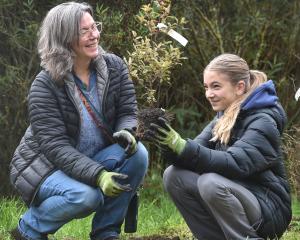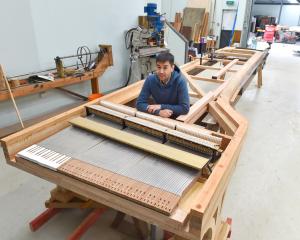
That incident was one of the thousands of inquiries made to the Dunedin-based National Poisons Centre, where staff advise on anything from toddlers who have ingested a contraceptive pill to people who have been bitten by a redback spider.
Figures released to the Otago Daily Times show the centre received more than 33,000 inquiries for the year ending June 30, amounting to about 90 a day, and a similar number of inquiries came via its hospital-only database.
Almost a third of those inquiries related to therapeutic drugs, including antidepressants (646), opioids (469) and anti-inflammatories (1172). Children featured heavily in the figures.
Operations manager Lucy Shieffelbien said a particular trend the centre had noted this year was the number of children being poisoned by highly toxic nicotine replacement therapies (NRTs) such as gum or lozenges.
"Often they are very accessible to small children, who cannot tell the difference between NRTs and actual lollies/gum. Whilst we applaud anyone's efforts to [quit] smoking, we also need to remind them to store their gum or lozenges out of the reach of children," she said.
Information about a child who had ingested an illegal substance would not be reported to authorities as calls remained confidential, and callers would receive "prompt and appropriate advice as the health and wellbeing of the child is paramount".
This year was busy, particularly in regards to information and media requests relating to synthetic cannabinoids and huffing, Ms Shieffelbien said.
"Often we notice a correlation when something is in the media and we get a spike in calls."
About 75% of calls were in relation to actual exposure, and "we often get calls from distraught or panicked parents who are holding a child that is crying".
"We realise that children are curious little creatures and you cannot supervise them 24/7."
For staff it was often about calming a stressed caller, so they could take in the medical advice they were receiving, she said.
The centre was often at the forefront of reporting trends, and regularly advised authorities such as the Ministry of Health, Consumer Affairs and the Environmental Protection Authority.
When those trends involved a product of a less toxic nature, then the manufacturer was contacted, as "it could be something as simple as the colour of the product that attracts children".
She confirmed some companies rang the centre to inquire if any calls had been received about their products.
She declined to name the household products that regularly topped their lists.
"It is not about naming and shaming."
A common call to the centre was for advice after a child had swallowed non-toxic silica gel - the small packets included as a drying agent with some items, such as shoes - which presented a choking hazard.
Other dangerous items around the home included nail polish, hand sanitiser, toilet sanitisers, dishwashing liquid, weedkiller, rat bait, snail pellets and plants such as black nightshade.
The key message from the National Poisons Centre was: "poisoning - you can't just kiss it better".
An estimated 75% of all poisoning inquiries could be treated safely at home with the correct advice.
Advertisement













